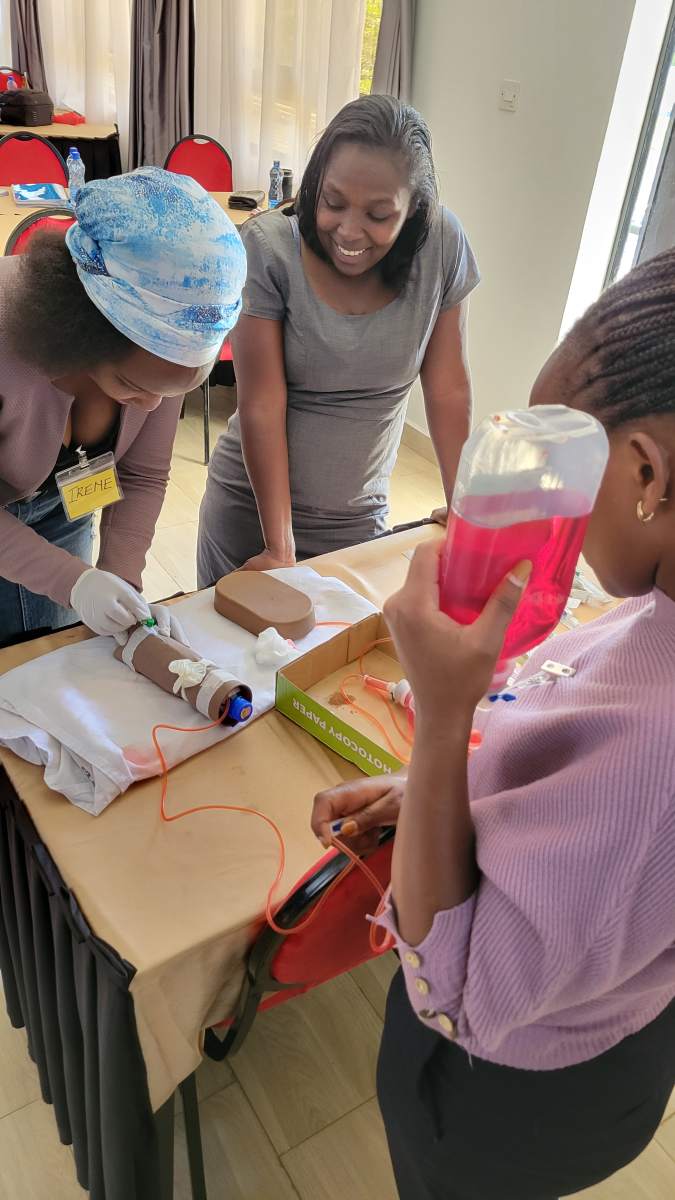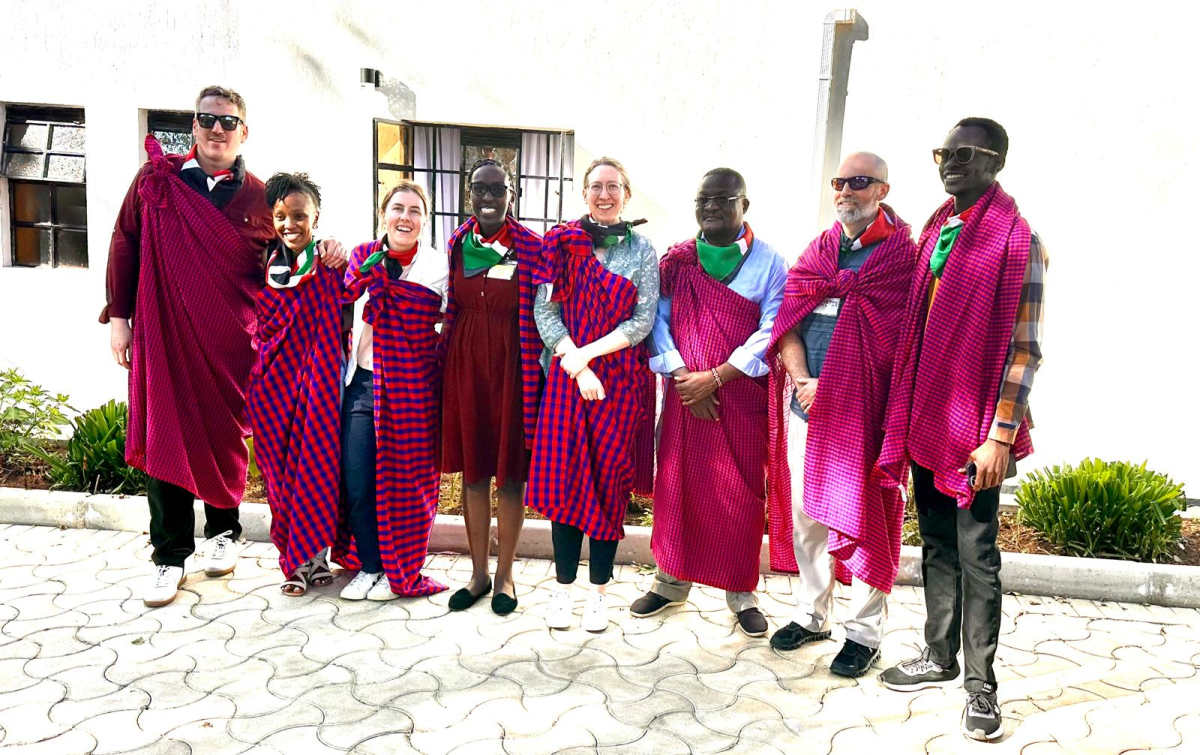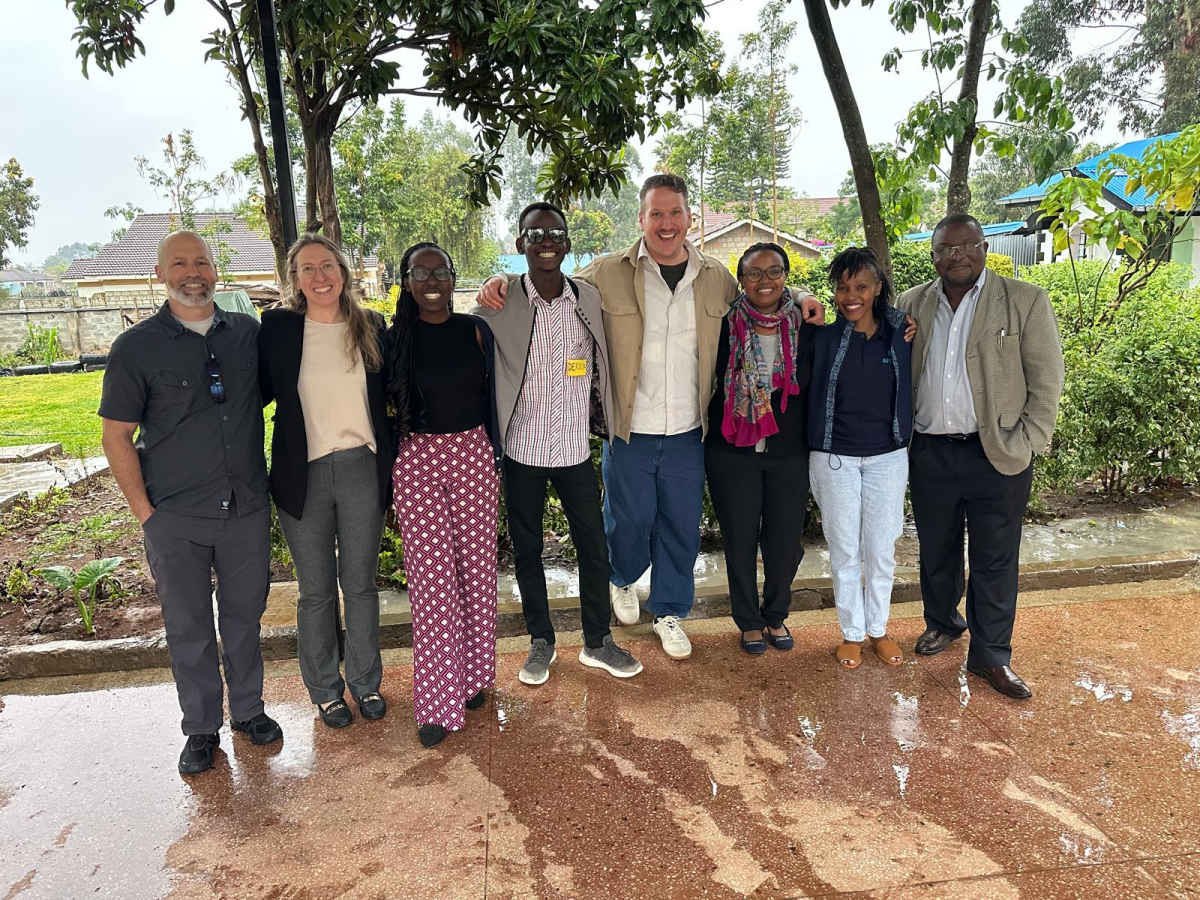I am planning to travel to Eldoret, Kenya to teach the WHO/ICRC Basic Emergency Care (BEC) course for health care providers at Moi Teaching and Referral Hospital. This is a 5-day course that covers the ABCDE approach and initial emergent stabilization and treatment of patients with difficulty breathing, shock, trauma, and altered mental status. We will teach a 1-day BEC Training of Trainers (ToT) course following the 5-day BEC course to allow all participants to become accredited BEC trainers. Our proposed project dates are March 10-15, 2025. This work is part of a larger emergency medicine training implementation project in Kenya. I have been collaborating with colleagues in Kenya since 2020 to expand emergency care training for medical school students before they start their intern year. Our prior projects have shown that medical school graduates at the University of Nairobi School of Medicine who completed the Basic Emergency Care course are more competent and feel more comfortable managing patients with acute illnesses and injuries than graduates without this training. We are working with medical schools in Kenya to implement this course for all senior medical students. This part of the project will train health care providers from Moi Teaching and Referral in both the Basic Emergency Care course and Training of Trainers course to expand the number of Kenyan trainers who can teach this course.
Thirty health care providers from Moi Teaching and Referral Hospital in Eldoret, Kenya will complete the WHO/ICRC Basic Emergency Care (BEC) course and Training and Trainers (ToT) course. We have a close relationship with the director of the Emergency Department at Moi Teaching and Referral Hospital, who is collaborating with us on this project. As we look to expand this course beyond the University of Nairobi School of Medicine, he has demonstrated enthusiasm and interest in implementing the BEC course at Moi University School of Medicine.
Formal emergency medicine training and residency programs are in the preliminary stages of development in many low- and middle-income countries (LMICs), including Kenya. However, emergency medicine training is critical to combat the high rates of death and disability from emergency condition in LMICs. The BEC course is a means to bridge the gap in emergency care training for health care providers in countries where formal emergency medicine programs are still under development. As we plan the implementation phase of the BEC roll-out in Kenyan medical schools, this project will increase the number of Kenyan trainers who can provide BEC courses for medical students. We hope to create sustainable access to the BEC course for Kenyan medical students that will not rely on international trainers. This will increase Kenyan medical students’ access to the BEC course and create sustainable emergency medicine training in Kenya.








My recent trip to Eldoret, Kenya, from March 10-15, 2025, to teach the WHO/ICRC Basic Emergency Care (BEC) and Training of Trainers (TOT) course at Moi Teaching and Referral Hospital was a rewarding experience. Over the course of five days, I worked with a dedicated team of BEC instructors to teach 30 healthcare providers critical emergency care skills using the ABCDE approach. The BEC course focused on the emergent stabilization of patients experiencing difficulty breathing, shock, trauma, and altered mental status—key competencies needed to improve outcomes in high-pressure situations. The BEC participants demonstrated impressive dedication throughout the course, and by the end of the week, they had developed greater confidence and competence in managing acute medical conditions.
In addition to the BEC course, I also led a one-day BEC TOT course. This was an essential component of the project, as it provided nineteen healthcare providers from the BEC course with the skills needed to become accredited BEC instructors. Training additional BEC instructors ensures the sustainability of training efforts by expanding the pool of local trainers who can continue teaching the BEC course long after the project concludes. The participants who completed the TOT course are now equipped to train their peers, contributing to the expansion of emergency care education across Kenya.
This trip is part of a larger, ongoing project aimed at expanding emergency care training in Kenya. The impact of this trip extends far beyond the 30 healthcare providers who participated in the training. By increasing the number of trained BEC instructors in Kenya, we are facilitating the widespread dissemination of this vital knowledge to healthcare providers throughout the country. This project is also part of a broader effort to build a sustainable emergency care infrastructure in Kenya, which will contribute to improved patient outcomes and reduced mortality from conditions such as trauma, shock, and respiratory failure.
I hope this training will have a lasting impact on emergency care in Kenya. The healthcare providers who completed the BEC and TOT courses are now equipped with the skills necessary to handle medical emergencies with greater confidence and competence. By training local healthcare professionals to become BEC trainers, we have created a sustainable model that will allow this important knowledge to be passed on to future generations of healthcare workers. This initiative, along with the ongoing efforts to implement emergency care training at teaching hospitals like Moi University, is laying the foundation for improved emergency care and better health outcomes for Kenyans.